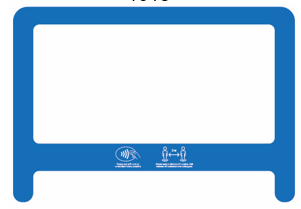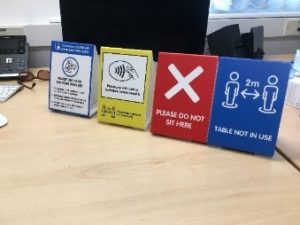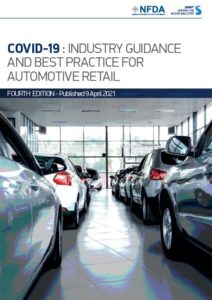Star Awards Nominate your Stars across the motor industry
Information for businesses
During these challenging times, The Motor Ombudsman is continuing to support businesses and is operating a normal service with no changes to our opening times.
Information and guidance relating to the Coronavirus outbreak is rapidly changing and being updated, and we would therefore recommend you visit the government’s dedicated business support website:
https://www.gov.uk/coronavirus/business-support
The Motor Ombudsman has implemented a remote working policy since March 2020, and will continue to operate as usual. However, we fully understand the difficulties you may be facing during these challenging times with the need for some business closures and staff being furloughed. If you require any additional support or time responding to a case with us, please just let us know by responding to the latest e-mail from our case investigator, adjudicator or ombudsman. Alternatively, please get in touch with our Business Services team and they will be happy to accommodate your needs.
New guidance on face coverings
In England, face coverings must now be worn in shops and shopping centres, in transport hubs and on public transport from 29th November.
In other indoor settings where a face covering is not legally required, you should still continue to wear a face covering in crowded and enclosed spaces where you may come into contact with other people you do not normally meet.`
You can read the updated guidance here.
Guidance published to help businesses
Government has published updated workplace guidance as England prepares to move to Step 4 of the government’s Covid Roadmap on Monday 19 July.
These guides cover a range of different types of work. You may need to use more than one of these guides as you think through what you need to do to keep people safe.
Throughout the guidance documents, the key message are:
- To undertake a full health and safety risk assessment, that includes risks from Covid-19 and communicate this fully with employees.
- Provide adequate ventilation and clean spaces more often.
- The need to self-isolate when showing any symptoms.
The most relevant workplace guidance documents for automotive are:
- Shops, branches, and close contact services – Guidance for people who work in or run shops, branches, stores or similar environments and for people who provide close contact services.
Car showrooms in England reopening on April 12th
On 22nd February, the Prime Minister set out the Government’s four stage roadmap – ‘COVID-19 Response – Spring 2021’ – for lifting the COVID-19 restrictions across England.
In his statement, non-essential retail, which includes car showrooms and dealerships, are expected to open before 12 April (Stage 2). This will be dependent on four tests which are:
- The vaccine deployment programme continues successfully.
- Evidence shows vaccines are sufficiently effective in reducing hospitalisations and deaths in those vaccinated.
- Infection rates do not risk a surge in hospitalisations which would put unsustainable pressure on the NHS.
- The assessment of risks is not fundamentally changed by new COVID-19 Variants of Concern.
Car showrooms in Scotland can reopen on Monday 5th April
Car showrooms along with all other non-essential retail in Scotland will reopen on Monday 5th April. You can read the latest guidance on creating and maintaining safer workplaces here.
Information on COVID-19 restrictions across the UK
Restrictions across the UK do vary, and you can read the latest updates for Scotland, Northern Ireland and Wales by clicking the links below.
Automotive operating guidance and best practice
Following the government guidance on operating safely in the workplace during the Coronavirus (COVID-19), the automotive industry has published guidance and best practice relating specifically to the motor retail and aftermarket sectors.
Automotive retail
COVID-19: Industry guidance and best practice –last updated 9th April 2021
Developed together with dealers and manufacturers, it is designed to complement government guidance for the overall UK retail sector, to help dealers of all shapes and sizes implement legal requirements as part of individual risk assessments in line with their unique business and customer needs.
The best practice guidance covers the entire customer experience, from booking appointments to showroom interactions, test drives, click & collect, part exchanges and aftersales, and includes advice on staff training, signage, sanitation and protective personal equipment (PPE).
The guidance has been updated in April 2021 with comprehensive safety measures covering showrooms, vehicle demonstrations and test-drives
Read the publication here (Updated 9th April 2021)
Automotive Aftermarket
COVID-19 : Industry guidance and best practice
The guidance has been developed for garages, warehouses, mobile operations and parts distributors. It covers every aspect of operations, from clear communications with customers and colleagues to social distancing, sanitisation and hygiene, and collection/delivery of vehicles from vulnerable owners. It is designed to complement government advice and help the aftermarket sector demonstrate safe practices for employees and customers across all points of interaction.
In line with new Government legislation, from 24 September 2020 it is compulsory for retail
(and leisure and hospitality) staff to wear a face covering in areas that are open to the public and
where they come or are likely to come within close contact of a member of the public.
Read the publication here (Updated 24th September 2020)
Resources for operating safely
We’ve pulled together a range of key resources which you’ll be able to use and share. This includes social media graphics to show you’re open and ready for customers, as well as safety posters.
You can access the resources here.
Safety products
We’re offering a range of products to help keep your customers and staff safe and reassured. You can find information on how to order here.



Coronavirus testing for employees
If you have 10 or more employees, from early April you are now able to order rapid lateral flow tests for your employees to collect from their workplace and use at home twice a week. You can do this if you cannot provide testing in the workplace.
You must register by 11:59pm on 12 April 2021. If your business is closed or you cannot provide tests now, you should still register so you can order tests in the future.
You can register to order tests if:
- your business is registered in England
- your employees cannot work from home
If you have less than 10 employees, you can find out if they can get a rapid lateral flow test from a local test site instead.
Do not use this service if you or your employees have symptoms. Anyone with symptoms should order a PCR test and stay at home.
Financial support for businesses
A range of financial measures to support businesses have been introduced, ranging from the Job Retention Scheme (furloughing staff) to access to grants and loans. The latest government updates for businesses can be found by clicking on the links below.
Financial Support for Businesses
This page includes information on a range of support available to businesses including:
- Claim for wages through the Coronavirus Job Retention Scheme
- Paying sick pay
- Paying tax
- Business rates relief
- Business support grant funds
- Support for the self-employed
- Small and medium-sized businesses
- Large businesses
Government has also produced guidance to assist employers, businesses and their staff in staying open safely during the coronavirus (COVID-19) outbreak:
- Guidance for employers and businesses on coronavirus (COVID-19)
- Businesses that must close and those that are exempt
Other useful websites
Business support and advice
- SMMT (Society of Motor Manufacturers and Traders) – publish regular updates on the latest developments relating to the automotive sector and host a weekly webinar.
- Federation of Small Businesses – have a dedicated Coronavirus hub and regular webinars dedicated to offering information for small businesses.
Support services, mental health and wellbeing
- Citizens Advice – provide information on access to benefits, debt and money, housing and consumer issues.
- BEN – the charity dedicated to supporting the people of the automotive industry, providing support for life for them and their family dependents
- Mind – mental health support and advice
- NHS – information on Coronavirus symptoms, advice, prevention and staying healthy
Coronavirus updates and webinars from The Motor Ombudsman
We have been sending out regular updates based on the latest government guidance. If you require any information about support available, please contact our Business Services team on 0345 241 3008,via email Business@tmo-uk.org, or our webform.
Coronavirus support FAQs
1. Is my garage allowed to remain open?
Garages and MOT service centres have been classed as an essential service and are allowed to stay open. Car showrooms were able to re-open from 1st June 2020.
To reduce social contact and avoid the spread of the Coronavirus, the government has published a list of businesses and venues that should close and any exceptions.
The list is subject to updates but, as of 30 March 2020, the following ‘retail’ sites are permitted to remain open:
• Garages and MOT services (previously ‘repair shops’)
2. Where can I find information about furloughing staff?
The Coronavirus Job Retention Scheme (CJRS) is a temporary scheme open to all UK employers. It is designed to support employers whose operations have been severely affected by the Coronavirus (COVID-19).
You can find the latest guidance on the government website here.
3. Will I be able to get the parts I need to continue to service and repair cars?
Under government definitions, garages and supply chain distribution are all exempt from the closure order, as they are considered critical services. Therefore, parts suppliers will continue to provide the necessary parts to their garage networks.
4. How can I ensure our business employs social distancing rules in the workplace?
The government has produced guidance which will assist employers, businesses and their staff in staying open safely during coronavirus (COVID-19). You can read the full guidance here.
Social distancing involves reducing day-to-day contact with other people as much as possible, in order to reduce the spread of the Coronavirus (COVID-19).
Limiting the spread of coronavirus at your centre
You should:
- follow social distancing advice and keep at least 2 metres between customers and members of staff at all times
- remind employees and customers to wash their hands for 20 seconds more frequently than normal
- Where facilities to wash hands are not available, hand sanitiser should be used
- frequently clean and disinfect objects and surfaces that are touched regularly, using your standard cleaning products
- use seat covers and new disposable gloves for every test
You can download posters, leaflets and other materials from the Public Health England website, to display on your premises.
Viewing areas
You can close viewing areas if you want to.
MOT certificates
Do not print MOT certificates unless the customer needs it for a specific reason.
Tell customers they can download and print the certificate when they get home and check their MOT history.
Taking payments
Avoid handling cash and use mobile or contactless card payments where possible. The contactless payment limit in UK is due to increase from £30 to £45 from 1 April 2020.
As well as the more general advice listed on the previous link, government has also specifically drawn up guidance for the retail sector which can be found here.
5. My premises is closed, but can I continue to sell cars through distance sales?
If you have needed to close your physical premises, you may be in a position to continue working remotely and sell vehicles through communicating online or on the phone.
The Department for Business, Energy & Industrial Strategy (BEIS) has advised that whilst car showrooms must remain closed, dealers can continue to sell cars remotely and may deliver them as long as they follow the guidance from Public Health England to protect both employees and their customers.
It is important to remember that, if the customer has not visited the premises during the period of the sale and the product is delivered to the customer’s home without any face-to-face contact with the retailer, this would be classed as a ‘distance sale’.
In fact, there are key differences in the legislation relating to this type of sale. The UK legislation that covers distance selling, which came into force in June 2014, is called the Consumer Contracts (Information, Cancellation and Additional Charges) Regulations 2013, sometimes referred to as the ‘Distance Selling Regulations’.
The biggest difference with a distance sale, versus one which is physical, is that the customer has the right to cancel an order and get a refund on their deposit within 14 days of placing it, and they can also return the car within the first 14 days of ownership and receive a full refund. In addition, they do not have to provide a reason for doing so.
The Motor Ombudsman has developed an online training course about distance sales within the automotive sector. You can find more details here.
6. When should I re-open my business?
Garage and MOT stations
Government has advised that garages and MOT stations are considered an essential service and can remain open.
In order to protect employees, staff sickness, or due to a reduction in custom, you may have needed to temporarily close your business. To assist businesses during periods of closure, the government has introduced the Coronavirus Job Retention Scheme to support businesses by paying 80% of an employee’s wages plus any employer National Insurance and pension contributions. This programme is due to last for four months from 1st March 2020.
We would recommend that you regularly check the government website for the latest information on when other businesses are able to open and when the Job Retention Scheme will close.
Car showrooms
Car showrooms are closed to the public and will be able to re-open on April 12th in line with other non-essential retail.
The Government has updated its guidance on working safely in shops and branches: https://www.gov.uk/guidance/working-safely-during-coronavirus-covid-19/shops-and-branches
SMMT’s safe working guidance for automotive retail is available to view and download here: https://www.smmt.co.uk/wp-content/uploads/sites/2/NFDA-SMMT-Industry-Guidance-COVID-19-Protective-Measures-for-Auto-Retail.pdf
We will update our accredited businesses and this webpage as soon as we have any updates relating to the re-opening of car showrooms in Northern Ireland, Scotland and Wales.
7. What non-practical training courses can my staff do whilst business is slower due to the Coronavirus?
During this quieter period, it might be an ideal time for your staff to complete online training so they can brush up on their knowledge and skills as well as learning something new.
The Motor Ombudsman has a range of training courses specifically created for the automotive industry covering Alternative Dispute Resolution, data protection (GDPR) and distance sales. On completion you will receive CPD points, and a certificate is awarded by The Motor Ombudsman on the successful completion of the modules.
You can read more about our range of training courses here.
8. What can I do to help support NHS key workers and the local community?
Many garages already do a lot to support their local community and have stepped this up in light of the Coronavirus outbreak. If this is something that your business would like to consider, you could introduce initiatives such as discounted rates for NHS key workers, or offer a vehicle pick-up and delivery service during this time if it is safe to do so and all the necessary precautions are being taken. The last thing a key worker wants to worry about during this period is issues with their car, which prevents them getting to and from work!
Some businesses have been able to support their local communities with offering a delivery service for essential items, such as food and personal protective equipment (PPE). Donations of PPE such as any surplus seat covers you may have.9

